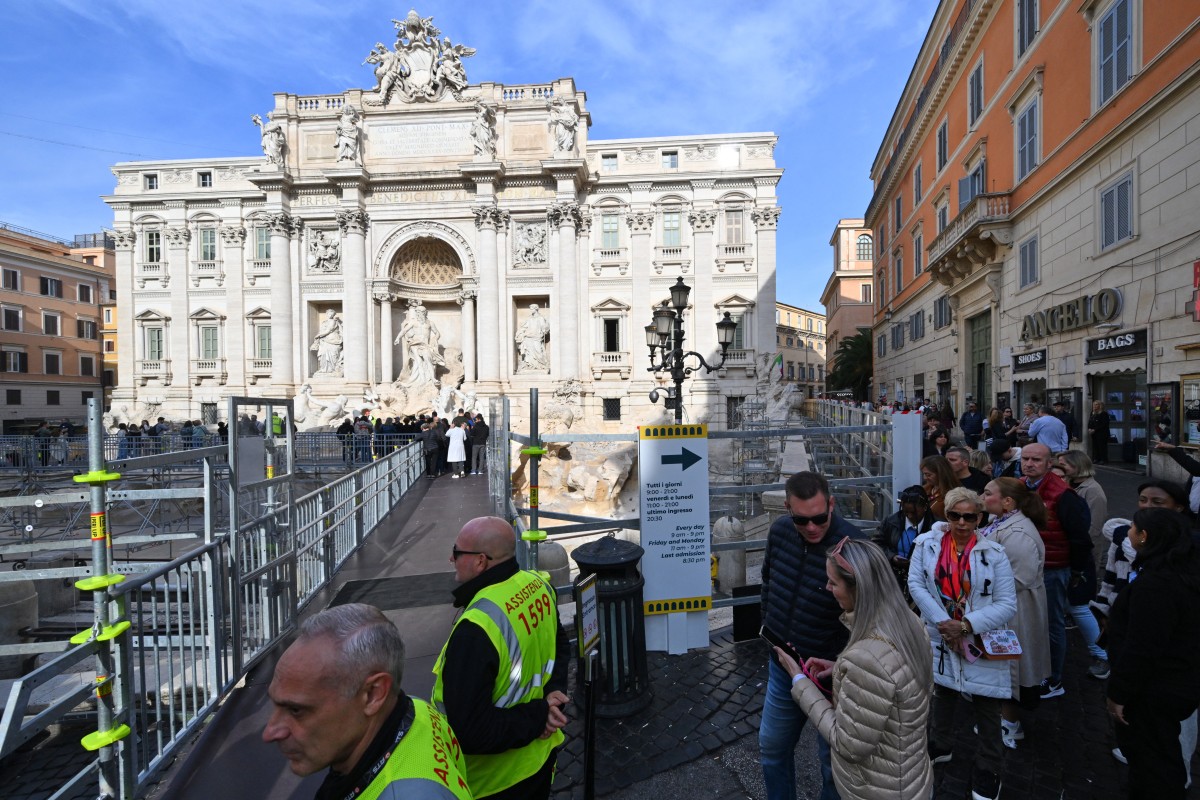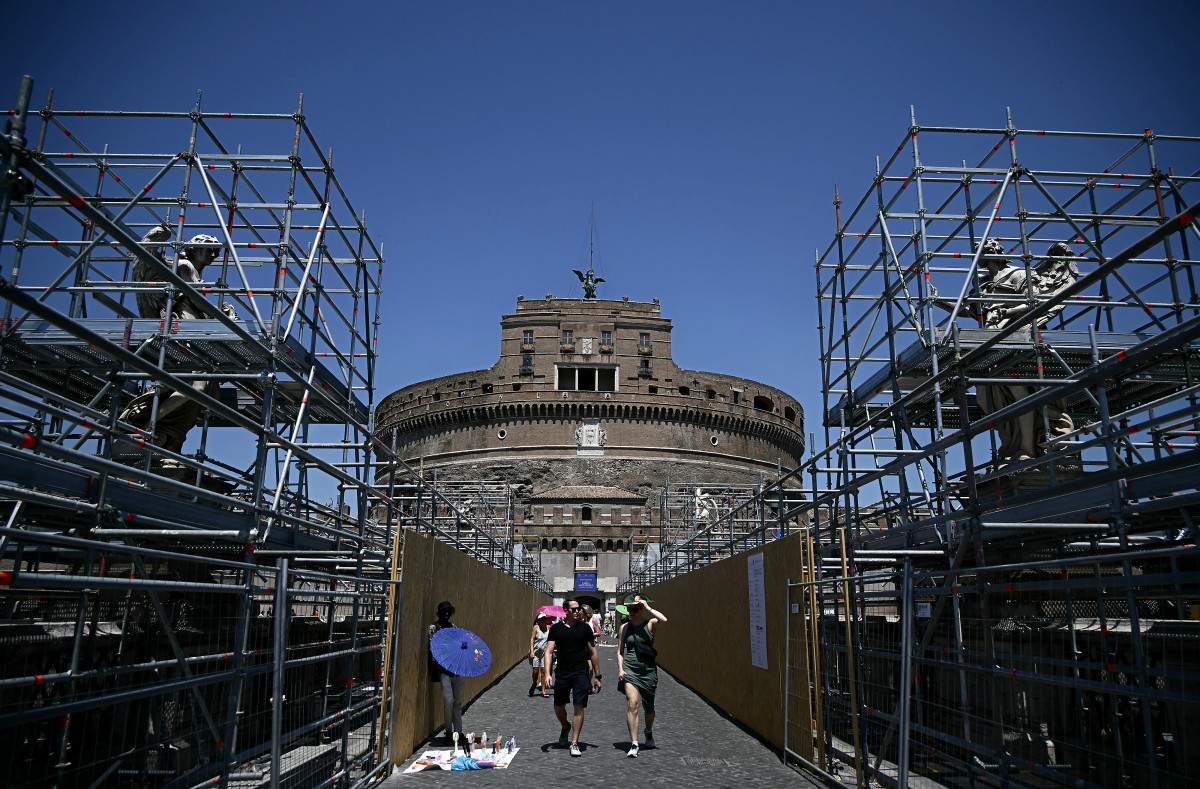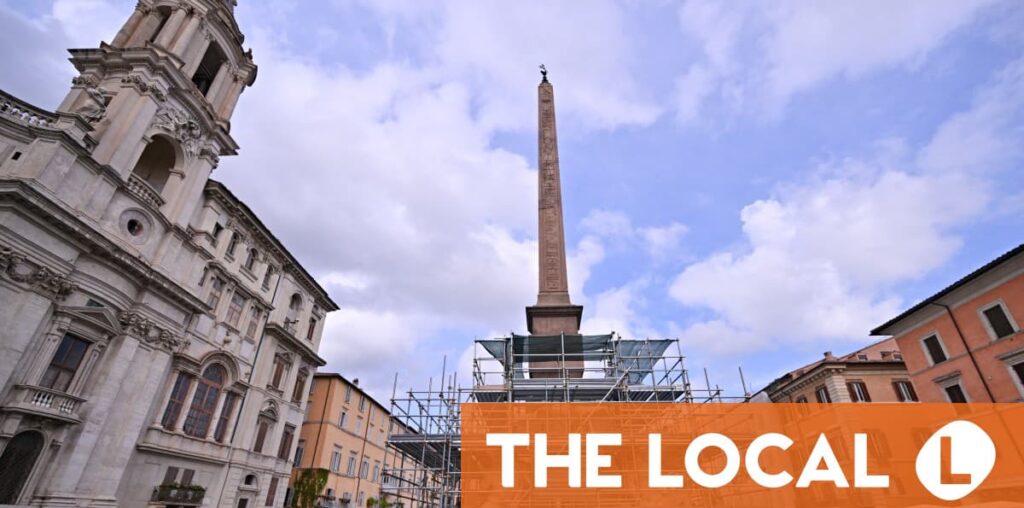Key monuments are hidden by scaffolding, while statues are covered with plastic sheeting.
“It’s weird to see a city totally under construction,” Clara Jay, 20, told AFP during a visit to the Trevi fountain, where a walkway has been installed over the Baroque masterpiece and the waters stopped while it is cleaned.
The Italian capital is “still very beautiful”, she added. Her 25-year-old brother Maxime, surveying a temporary pool into which tourists throw their coins, admitted to being “a bit disappointed”.
A short walk away is the fountain and obelisk in front of the Pantheon, one of the best-preserved relics of ancient Rome. It, too, is boarded off.
And it’s the same story across the Italian capital, as it prepares for the arrival of the 33 million people expected in 2025 for the Jubilee, a year of pilgrimage declared by Pope Francis.
Organised roughly every 25 years by the Catholic Church, the Jubilee is an opportunity for pilgrimage and prayer, and marked by religious and cultural events held across the Vatican and Rome.
Roadworks, traffic jams
At the official Jubilee shop a stone’s throw from the Vatican, everything from water bottles to T-shirts bearing the event logo and its anime-inspired mascot are already on sale.

People queue at the Trevi Fountain during the opening of the temporary suspended walkway allowing visitors to see the fountain closer and to throw a coin in a basin to make a wish as per tradition during renovation works, in Rome, on November 9, 2024. (Photo by Andreas SOLARO / AFP)
But with just a month to go until Pope Francis launches proceedings by opening the Holy Door of St. Peter’s Basilica on December 24, the preparations seem far from complete.
Across the historic centre and beyond, new cobbled streets are being laid and pavements redone, the noise and dust of the diggers and jack hammers filling the air.
READ ALSO: Inside Italy: Why Elon Musk is obsessed with Italy and will Rome be pricier in 2025?
Traffic jams — already endemic in a city where the car is king — form between diversions, the beeping of horns adding to the din.
Advertisement
Dotted among the construction sites, a small army of specialists clean marbled statues and monuments sheathed in boards or plastic sheeting.
“It’s a bit of a shame because it obstructs the view of things,” said Susanna Catellani, a 22-year-old from northern Italy visiting Rome. “Luckily I’ve seen it other times, so I can get over it.”
‘A disaster’
Others are less forgiving.
Many visitors have posted online photos of the disruption, noting how it contrasts sharply with the romantic image from Federico Fellini’s famous “Dolce Vita” film and most recently, the Netflix hit series “Emily in Paris”.
Inconvenience aside, concerns are also growing about how an already crowded city, where public transport is unreliable and taxis are scarce, will cope with millions more visitors.

Tourists walk through the worksite on Castel Sant’Angelo bridge in Rome on July 17, 2024. (Photo by Filippo MONTEFORTE / AFP)
“It’s a disaster, all of Rome,” lamented Tiziana Renzetti, a local resident stuck in traffic earlier this week.
“The Jubilee… I don’t even want to think about it!”
Taxi driver Marco Palmigiani said he expected the traffic to get much worse. “Rome will explode,” he said.
Advertisement
But the authorities insist the works are on track.
“All the main targets and milestones have been met,” said Rome mayor Roberto Gualtieri.
As of November 7, 105 construction sites had been started out of 249 planned, the municipality said.
And some key sites would be ready within weeks, it stressed, including Piazza Pia near the entrance to St. Peter’s Square and the square outside the basilica of San Giovanni in Laterano.
“The city has readied itself to offer an even more beautiful face…,” Rino Fisichella, the Vatican’s lead organiser of the Jubilee, said at the end of October.
“And little by little we will see the construction sites, which have tested everyone’s patience for months, disappear.”

